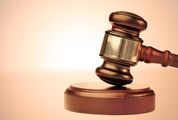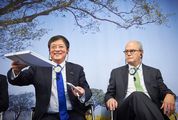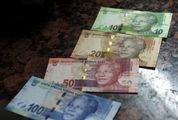TIME magazine recently selected Public Protector Thuli Madonsela as one of the world’s 100 most influential people. But just how influential is Madonsela, really?
There is a case to be made that she is one of the least influential persons in the country, certainly when measured against the constitutional significance of her office. At the end of the day she can only make recommendations. In the other direction, one could argue her office is the quintessential example of influence. She makes findings and suggestions, which fall on other individuals or bodies to enact.
Implicit in both, however, is a heavy reliance on outside authority to give her actions meaning. Consider this: her predecessor, Lawrence Mushwana — an African National Congress (ANC) member of parliament — came to define that office during his term as entirely ineffectual with regards significant political cases. Nothing has changed in terms of the laws or regulations that govern the Office of the Public Protector since he vacated, only the incumbent.
With Madonsela a series of high profile reports that not only reveal Mushwana as compromised but the extent to which the power of the public protector is reliant on environment in which it functions have surfaced.
The truth is that Office of the Public Protector is a litmus test for society more broadly, the independence and robustness of the media, civil society and the opposition and, ultimately, of the electorate itself. The influence of the public protector, therefore, depends entirely on how its reports are received. That is nothing to with Madonsela. Right or wrong, it is hardwired into the legislative framework that regulates the powers of her office.
It is true the office bearer must be competent and independent so that fair and authorative reports are produced. Madonsela has exercised her independence in a difficult environment. For that she deserves full credit. But the public protector will never operate in a political environment in which its findings are not contested. That is part and parcel of the job.
Nkandla is the issue that has defined Madonsela’s reputation. But one cannot really use the media, civil society or the opposition to confirm her influence on this front. The environment for her damning findings against President Jacob Zuma and several senior members of his administration was well set before she confirmed what everyone knew. In this sense her report suffers a kind of confirmation bias. It proved, through the testing of evidence and reason, the argument already well documented by civil society more broadly. If there was any influence on this side, it was merely to augment the veracity of that narrative. That has resulted in it being widely celebrated.
That is not to belittle the significance of that fact it is critical. The public protector is an independent arbiter. An adverse finding from that office carries a weight and significance with which civil society cannot compete. It is akin to a legal judgment, but with one significant difference: the public protector cannot enforce any consequence inherent to a finding she makes, she can only recommend a course of action. From that point on her influence comes to a grinding halt and the forces that would have set the scene for her to investigate must, through their own actions, take the matter further.
So, on all these fronts, yes, the public protector has had some influence on the unfolding Nkandla sage but it was hardly defining. Hers was to confirm an existing narrative and make a powerful set of recommendations, the nature of which has elicited further action from those responsible for taking the matter forward. But they would have done so regardless. Here is an interesting question: If the public protector was never approached on Nkandla, would the media, civil society and the opposition have behaved any differently? Not a chance. They would have pressed on regardless. In her report they have an extra and powerful arrow in their bow, to be sure, but they were at war long before she added that weapon to their arsenal.
Which leaves the electorate — the ultimate test for the public protector’s influence. What has its response been to Madonsela’s report into Nkandla?
Here are two facts: First, her report was absolutely damning of the president and his government. In many well-established democracies it alone would have been enough to bring an administration down. Second, the ANC will romp home in the upcoming election. It might suffer a slightly reduced majority but never for a moment was that majority in jeopardy.
The fundamental message contained in the Nkandla report was that the rot for so long evidenced in the ANC has manifested now at the very top; that it is as pervasive and ubiquitous as it is palpable and tangible. We have all seen the pictures. Rarely has a form of corruption been so blatantly obvious. ANC voters, however, couldn’t care less. Their support is not granted or retracted on the basis of such things as evidence, reason and logic — the tools of Madonsela’s trade — but on emotional attachment, culture and history. And, on that front, Madonsela has little to offer.
The depressing truth of this election is the following fact: blatant corruption at the very pinnacle of our democracy, shown in pictures, captured in the media and comprehensively documented in the reports of independent watchdogs has next to no effect on voters. The majority of South Africans simply don’t care if their government is corrupt. In fact, they seem to like it. Because, come rain or shine, they put the most crosses next to a party that treats them with nothing but disdain. Many South Africans don’t live in the here and now. They live in the past. And that kind of retroactive loyalty means contemporary events have little influence over their decision-making.
Then there are the corrupt themselves. What influence does Madonsela exercise over them? One of the defining things about the Nkandla report was that after it broke in the media, indeed while the public protector herself was investigating, the concerned parties simply carried on regardless. Indeed, they even upped the ante, spending more.
For civil society, Thuli Madonsela is an ideal archetype, a dream. She is what we all want to her be — the line between accountability and consequence. We have framed and imaged her as a powerful force for good. That she is good there can be no argument. She embodies the idea. But when it comes the majority of South African voters that she is a powerful force couldn’t be further from the truth. She is, to ANC voters and the party itself, a bureaucratic loophole to be jumped through, ignored or quashed.
Madonsela has done a profoundly difficult job in a fundamentally hostile environment. So one can add brave to the list of attributes she is worthy of. It is the ANC that is largely responsible for diluting the influence of her findings. In turn, it must carry all that blame. But whatever the reason, the effect is obvious: you can in South Africa document in intricate detail the absolute and profound ethical failings of a president and he can plan his inauguration regardless, safe in the knowledge the influence of that finding will have little real effect on the majority of voters themselves.
It doesn’t get more depressing than that.
This massive disjuncture between Madonsela’s influence on civil society and the electorate is a difficult conundrum to solve. You cannot for a moment resign yourself to accepting the limited influence of her office. Every report is a chip off the ANC’s hegemonic hold on the public mind. And so, quite rightly, an independent public protector should be celebrated and recognised. But one must be careful of conflating the ideal with the reality. There is a very big gulf between the two.
The depressing truth is that a conflation of circumstances presented South Africa with a telling moment this election: a comprehensive and inarguable case against a sitting president delivered as voters went to the polls. When the time comes to make an informed decision, well aware of the evidence, you can be sure the majority won’t take the slightest bit of notice.
Influence is not an absolute commodity. Madonsela has much of it. But of the kind that counts, she can only offer up a mirror. Most people choose not to look into it.




















Change: -0.47%
Change: -0.57%
Change: -1.76%
Change: -0.34%
Change: 0.02%
Data supplied by Profile Data
Change: -1.23%
Change: -0.37%
Change: -0.47%
Change: 0.00%
Change: -0.42%
Data supplied by Profile Data
Change: 1.39%
Change: 1.52%
Change: 1.24%
Change: 1.25%
Change: 1.17%
Data supplied by Profile Data
Change: 0.11%
Change: -0.52%
Change: 0.20%
Change: -1.38%
Change: -1.73%
Data supplied by Profile Data